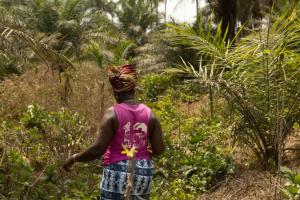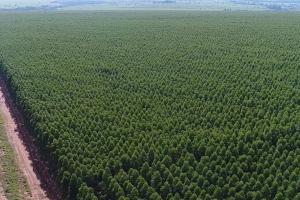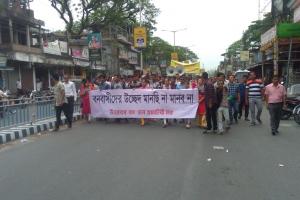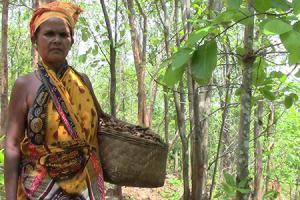Carbon Storage
Monoculture tree plantations are said to provide the “ecosystem service” of carbon storage, which is promoted as a solution to halt climate chaos. But carbon is only stored in the trees for a short time, until they are cut down. Therefore, relying on plantations to store carbon is a false solution to avoiding climate chaos. Carbon offset plantations allow polluting companies to continue burning fossil fuels.
A long cycle of state repression in India now sees new amendments to the colonial Indian Forest Act which would not only make forest bureaucracy more powerful than ever, but would also de facto put an end to the landmark Forest Rights Act.
India’s programme to compensate for the destruction of forests for development projects is routinely setting up monoculture tree plantations on community commons. Women, who are mostly affected, are at the centre of its resistance.





